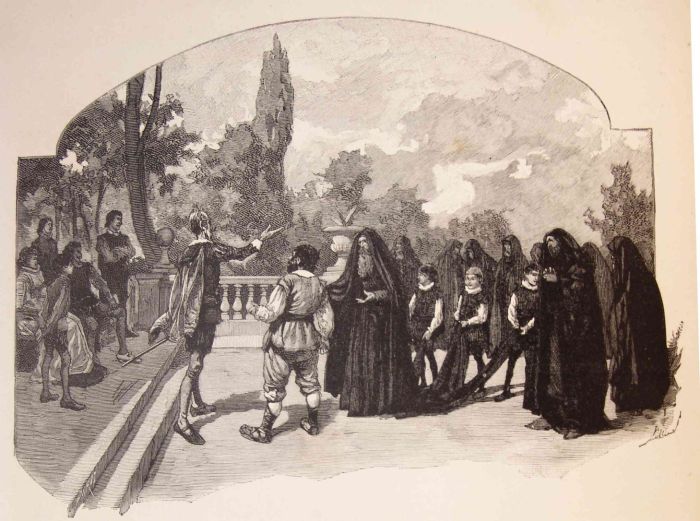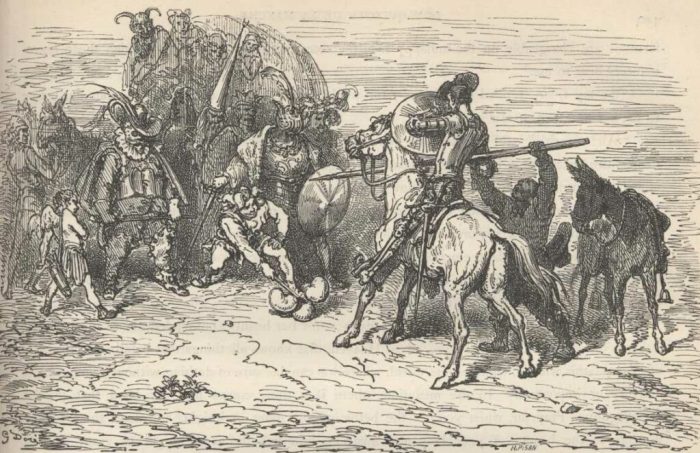Nombre del caballo de don quijote – Embark on an exploration of Rocinante, the iconic equine companion of Don Quixote, a figure deeply embedded in the tapestry of literature. This discourse delves into the historical context, physical characteristics, symbolic significance, and literary impact of this extraordinary horse, offering a comprehensive understanding of its profound role in Cervantes’ masterpiece.
Rocinante, a name echoing both nobility and absurdity, aptly reflects the paradoxical nature of Don Quixote’s character. As the embodiment of idealism and delusions, Rocinante mirrors the knight errant’s unwavering belief in chivalry amidst a world that has outgrown such romantic notions.
Historical Context: Nombre Del Caballo De Don Quijote
Don Quixote, a beloved literary figure created by Miguel de Cervantes, embarked on his adventures on the back of his loyal steed, Rocinante. In the 16th-century Spain where the novel is set, horses played a crucial role in society. They were used for transportation, warfare, and agricultural labor.
Don Quixote’s choice of a horse, therefore, reflects both his knightly aspirations and the cultural significance of horses in his time.
Rocinante’s Appearance and Characteristics

Rocinante is described as an old, thin, and bony horse. His ribs protrude, and his coat is a dull gray. Despite his unprepossessing appearance, Rocinante is a loyal and devoted companion to Don Quixote. His physical condition mirrors the idealism and impracticality of his master, who sees him as a noble steed worthy of a knight errant.
Rocinante’s Symbolism, Nombre del caballo de don quijote
The name “Rocinante” is derived from the Spanish word “rocín,” meaning “workhorse.” This reflects Rocinante’s humble origins and his role as a practical means of transportation. However, Don Quixote’s imagination transforms Rocinante into a symbol of his own delusions and idealism.
He sees the horse as a noble charger fit for a knight, despite its obvious shortcomings.
Rocinante’s Role in the Novel
Rocinante is more than just a mode of transportation for Don Quixote. He is a constant companion and confidant, sharing in the knight’s adventures and misadventures. Together, they face challenges and obstacles, symbolizing the human spirit’s resilience and the pursuit of dreams, no matter how impractical they may seem.
Comparative Analysis

Rocinante is not the only famous literary horse. Other notable examples include Pegasus, the winged horse of Greek mythology, and Bucephalus, the legendary steed of Alexander the Great. While Rocinante lacks the mythical qualities of Pegasus or the historical significance of Bucephalus, he shares their symbolic importance.
All three horses represent the dreams, aspirations, and follies of their riders.
Cultural Impact
Rocinante has become an iconic figure in literature, art, and popular culture. He represents the human spirit’s ability to dream and strive for greatness, even in the face of adversity. His enduring legacy is a testament to the power of imagination and the enduring appeal of Don Quixote’s story.
Quick FAQs
What is the significance of Rocinante’s name?
Rocinante’s name, derived from the Spanish words “rocín” (nag) and “ante” (before), suggests a horse that was once strong but is now old and worn-out. This aptly reflects the physical condition of Don Quixote’s steed and also symbolizes the fading ideals of chivalry that the knight errant represents.
How does Rocinante represent Don Quixote’s delusions?
Rocinante’s physical appearance and behavior often mirror Don Quixote’s own delusions. For example, Rocinante’s thinness and weakness parallel Don Quixote’s own frail physique, while his tendency to stumble and fall reflects the knight errant’s frequent misadventures.
What is the symbolic meaning of Rocinante’s adventures?
Rocinante’s adventures alongside Don Quixote symbolize the challenges and obstacles that idealists face in a world that often does not understand or appreciate their dreams. Through their shared experiences, Rocinante and Don Quixote embody the indomitable spirit of those who dare to pursue their passions, even in the face of adversity.